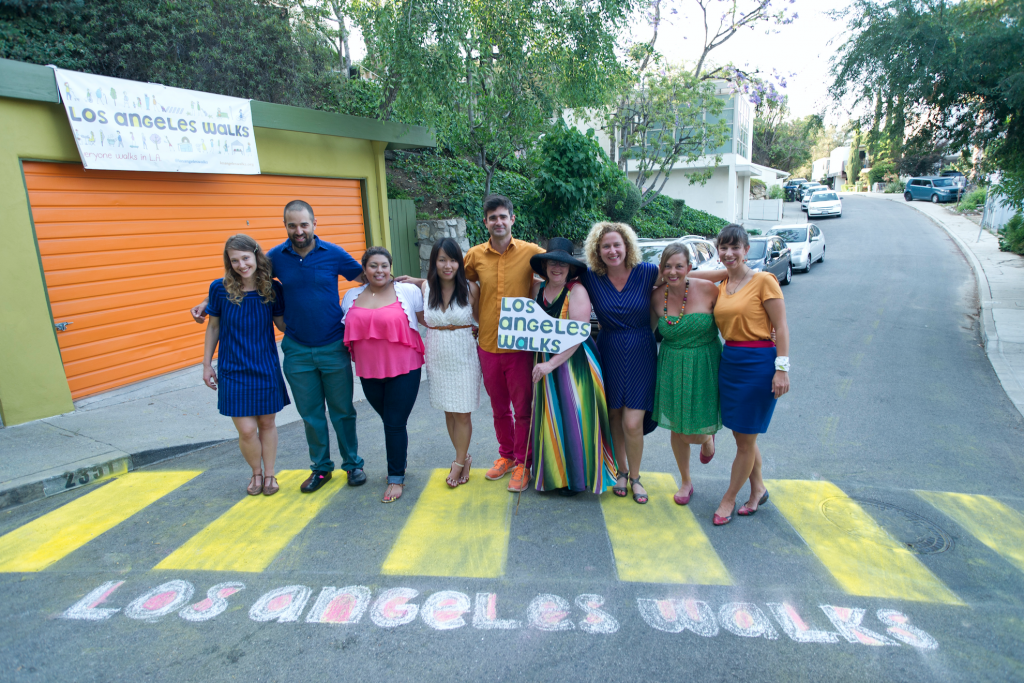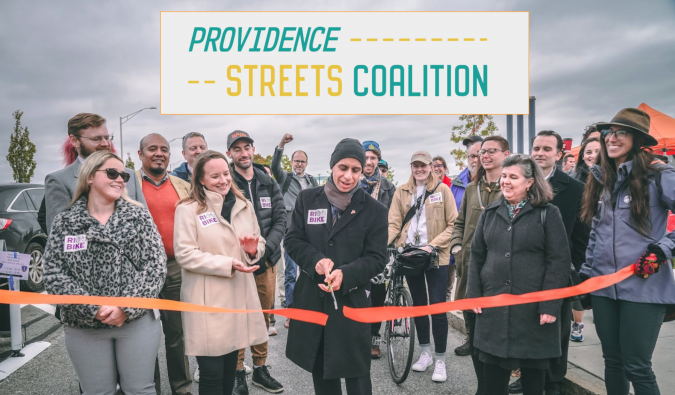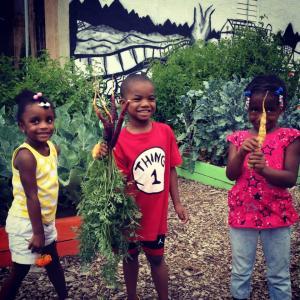10 Climate-Conscious Projects We Love
Published November 28, 2023
Many scientists and activists have declared this decade “make or break” for climate action, and if you step outside, it is not difficult to understand why. Whether you’ve experienced extreme heat waves or intensifying drought, it’s clear that the climate crisis is already having a tangible impact on the world around us. With such high stakes, it is essential for groups—both small and large—to take action for a liveable future. However, such action can often feel daunting. The climate crisis is unfurling at a global scale, we might ask ourselves, so is it really possible to make change at the local level? The answer is yes and no. It is essential to organize against corporations such as oil companies, which are the largest contributors to global emissions by far. However, local action can help us discover solutions that can have a much larger impact than we might originally believe. Plus, it allows us to embody the future we hope to live in, resisting despair and embracing a better world. If you’re looking for some inspiration, we’ve outlined 10 projects to stop climate change we love.
Hungry for more? Check out our new Active Transporation Toolkit, which highlights projects using transportation to address climate change and create healthier communities.

Los Angeles is known for many things: Hollywood, beautiful beaches, and yes…cars. This has led to some of the worst air pollution in the world, which has caused negative environmental and health impacts. But what if it doesn’t have to be this way?
Like the name suggests, Walk this Way LA helped South LA residents to rely less on their cars by understanding how long it would take to walk between different popular destinations. The activists found that many people in LA choose not to walk because they don’t know how long it will take to get between destinations. As they write, “studies have shown that just the simple act of translating “miles” to “minutes” is enough to encourage walkers to make a trip on foot.”
To encourage more walking, they created colorful signage they placed across South Los Angeles that made it clear how long it would take to walk to different places. They made it (literally) clear that L.A. didn’t have to be a city exclusively dominated by cars.
The Arapahoe Street Protected Bike Lane project is dedicated to combatting climate change through innovative urban planning in Denver, Colorado. Their primary strategy is to make biking throughout the city safer, which will encourage more people to ride their bikes rather than oil-reliant cars. According to the organizers, “60% of the general population identifies themselves as an “interested, but concerned” bicyclist, meaning that they want to bicycle but are concerned about how safe it is. Through community engagement and strategic partnerships, the organization actively advocates for policies that prioritize bike riding and eco-conscious urban development. The project is closely related to the Green Lane Project, a national effort to build out more protected bike lanes in cities across the United States.
Safety is not the only concern people have when riding bikes. They may also wonder where to safely park their bike once they’ve arrived at their destination, which is often not nearly as easy parking on the street or in a garage. To address this challenge in Jersey City, New Jersey, a group of organizers created Jersey City Bike Racks. Through a partnership with the Jersey City government, Sustainable Jersey City, Bike JC and the Jersey City Art School, these neighborhood leaders installed 275 bike racks around the city. This incentivized biking, increased awareness for bikers, and beautified the city. Win win!
Ride On! Bike Coop decreases over-reliance on cars by teaching South Los Angles residents how to ride and fix their own bikes. Founded in 2015 by Ade Neff, the organization now advocates for a wide variety of initiatives, including to provide 200 free e-bikes to residents of South LA. The organization has also laid out plans to make several intersections safer for pedestrians and cyclists—and to transform Los Angeles into a world-class city for all street users, not only car owners. (To hear a full interview from Neff, check out our Active Transportation Toolkit!)

The Providence Streets Coalition was founded in 2019 as a partnership between more than 70 community organizations, local businesses, schools, neighborhood and professional associations. Since then, they have created more than 35 miles of urban trails and traffic calming initiatives around the city, making the streets easier to navigate as a biker, walker, or public transportation-user. They also helped advocate for the city’s Green and Complete Streets Ordinance, which ensures mobility users of all ages are able to move safely around the city. Project founder Liza Burkin encourages climate activists to work together, even if they don’t get around the city in the exact same way.
“Be intersectional in your advocacy. Consider all viewpoints. Take breaks. Celebrate every small victory: every tree planted, every mile of bike lane added, every intersection that’s done,” she says in our recently launched Active Transportation Toolkit.
The Car Free Astoria Water Walk project envisions a thriving public space that fosters community connections and promotes a healthier, more sustainable way of living. To do this, they launched a “car free weekend” to reduce carbon emissions and encourage children and their families to move freely in the Astoria neighborhood of Queens. This transformed the street into a waterfront promenade, where residents could take fitness classes, purchase produce, and listen to live music.
If you’ve ever lived in or visited a large city, you know what it’s like to walk home beneath a poorly lit underpass. It can make you feel unsafe—and deter you from walking altogether.
That’s why organizers in New Haven got together to transform this “dark creepy underpass” into a vibrant walkway, which they hope will encourage less people to rely on their cars and more people to rely on their feet. Since dozens of students and New Haven residents crossed the underpass each day, this transformed their experience and made the space more welcoming and alive.
As Liza mentions above, taking an intersectional approach is essential for long-lasting climate advocacy. This partnership between Multicultural Communities for Mobility and several youth organizations brought together residents to reimagine Cesar Chavez Avenue, a central transportation corridor in the Boyle Heights Neighborhood of Los Angeles. Through a daylong activation, organizers gathered materials, such as paints and chalk, to help neighbors reimagine the street, with an emphasis on pedestrians, bikers, and public transportation users.
Fifteen years ago, an Eagle Scout named Edward Maddalena set out to make his neighborhood more eco-friendly. To do this, he decided to familiarize members of his community with the simple but transformative practice of composting. By fundraising on ioby, he was able to purchase every attendee a compost bag so they could get started at home. Food waste and the methane it produces has a huge impact on our carbon footprint, and composting is a simple way to make a difference in your everyday consumption patterns. By hosting a fair in his community, Maddalena ensured that his vision touched everyone on the block.

Like Edward Maddalena, the organizers of the SWAG Project understand that food justice and addressing climate change are inextricably bound. The SWAG Project combats climate change by spearheading innovative sustainability efforts in New Orleans such as urban farming, education, and community-building programs. Each year, they grow and give away more than 3,500 pounds of fresh fruits and vegetables. They also train more than 750 high school students on how to grow their own food—a far cry from the industrial agricultural practices that harm the soil, our bodies, and the earth.
Resources
If you are looking for additional resources and inspiration about how to address climate change in your community, check out our Active Transportation Toolkit, which provides tangible advice, tips, and interviews about dozens of projects.
ioby is a national crowdfunding nonprofit, but we’re much more than that. We help connect leaders (like you!) with one-on-one coaching and support to raise the money they need from their communities to make our neighborhoods safer, greener, more livable, and more fun.
Have a great idea to get good done in your neighborhood? We want to help! Share your idea with us and we can help get you started.
